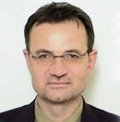 Dr Armin Fidler told the European Health Forum in Gastein, Austria, that the Bank – which is responsible for financing development programmes in some of the world’s poorest countries – now sees immunisation as a major part of any comprehensive health strategy.
Dr Armin Fidler told the European Health Forum in Gastein, Austria, that the Bank – which is responsible for financing development programmes in some of the world’s poorest countries – now sees immunisation as a major part of any comprehensive health strategy.
“There is clear evidence that immunisations are among the most cost-effective public health interventions so it makes sense for the World Bank to give substantial financial support for certain vaccinations,” he said.
Dr Fidler praised initiatives by groups such as the Global Alliance for Vaccinesand Immunisation (GAVI) which has helped to boost access to vaccines in the developing world. He praised the ‘vaccine bonds’ scheme, devised by GAVI, the World Bank and others, to fund immunisation programmes by raising money on investment markets.
Supporting preventative health measures is not just a matter of doing the right thing, Dr Fidler said, explaining that donor countries benefit from reducing the spread of disease as well as from the stability that development programmes can deliver.
“Vaccine-preventable diseases are also about community. Investing in vaccines as part of development programmes is not just altruism – in a globalised world we also get something back.”
However, he said donors should be mindful of the need to sustain their investment in immunisation programmes. “While this [investment] is a good thing, what we are doing is entering into a long-term liability. We cannot back out of a commitment to an immunisation programme.”




